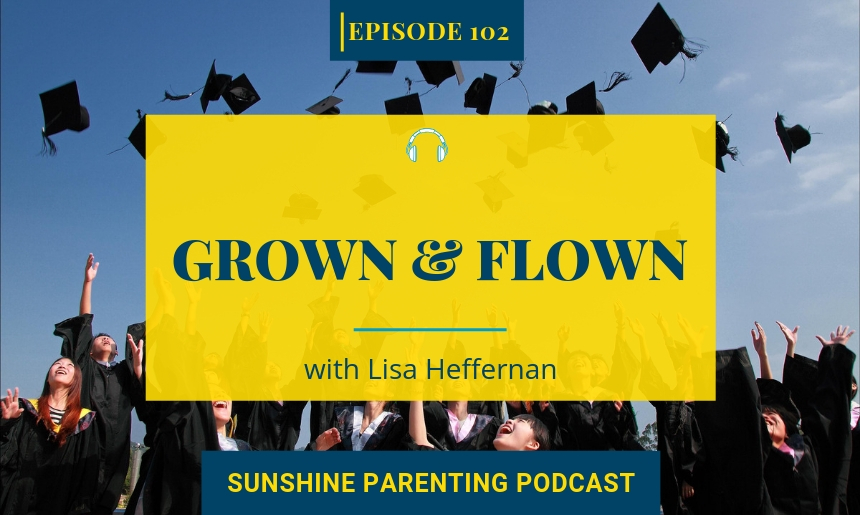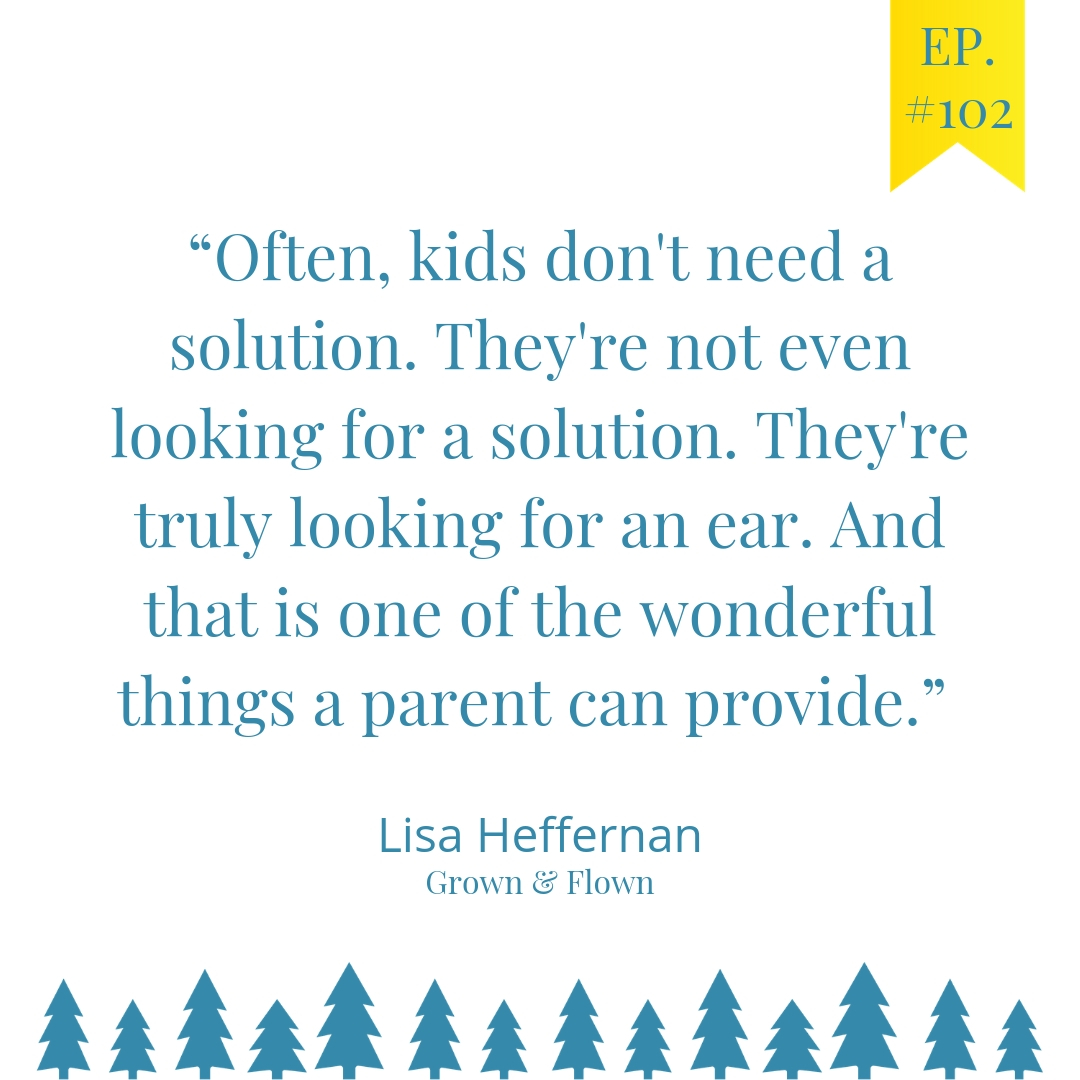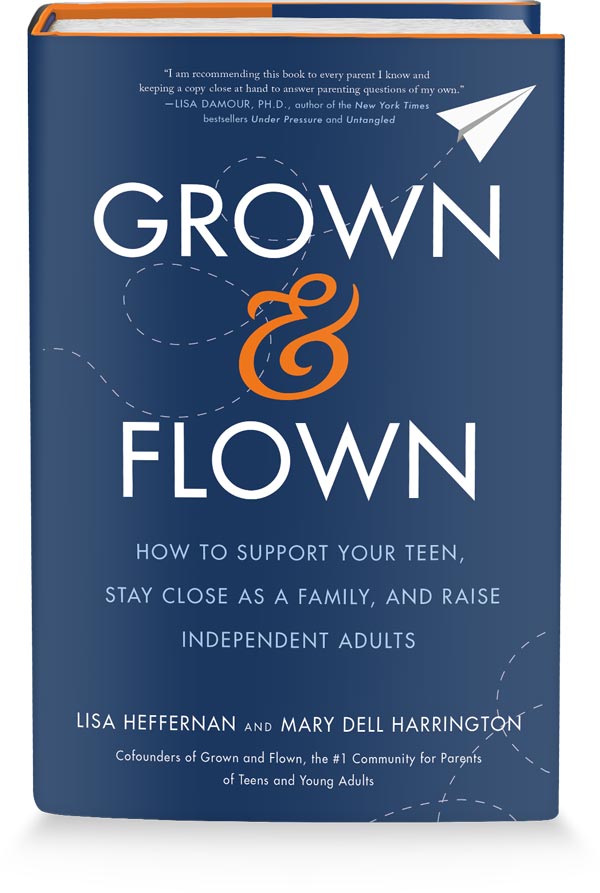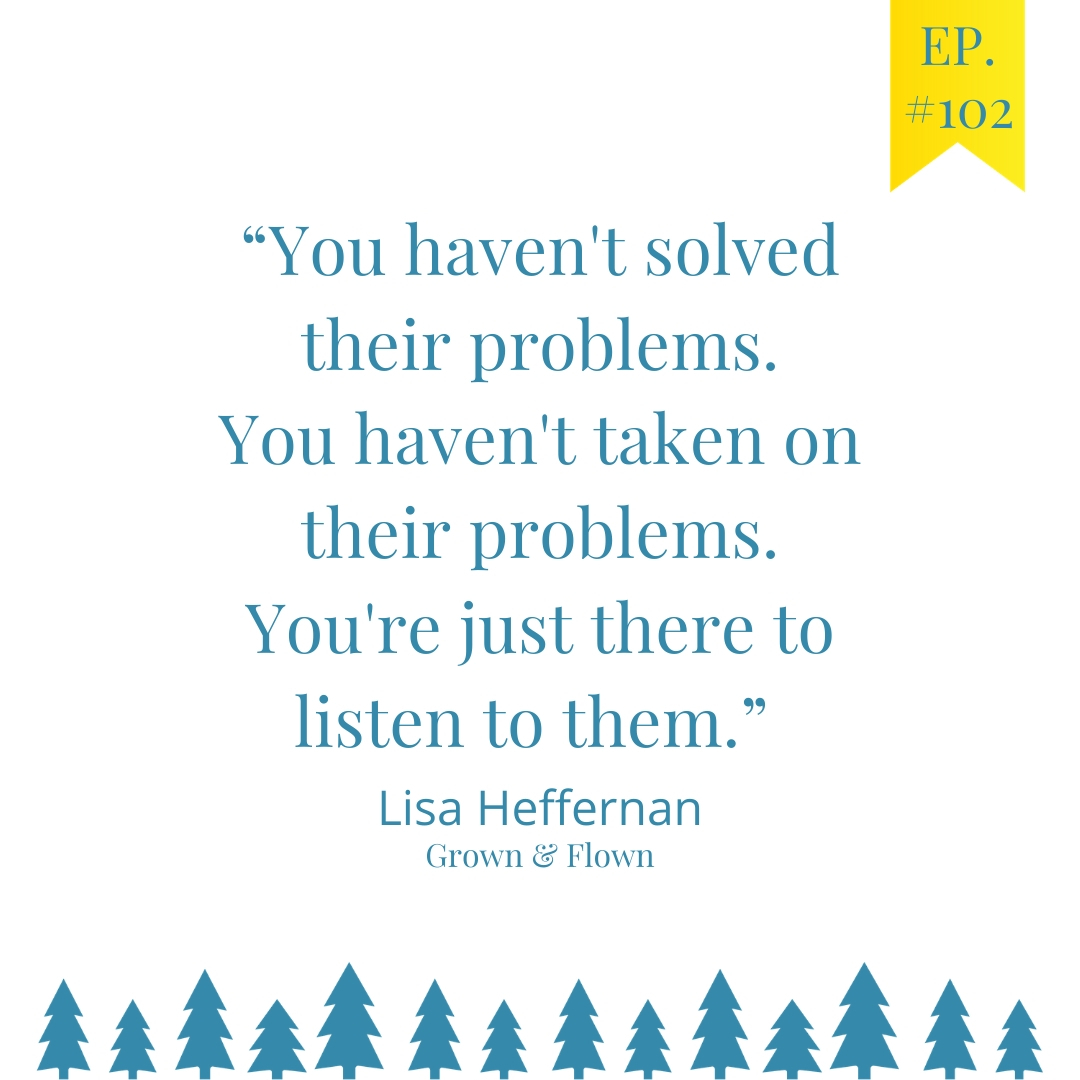
In Episode 102, I’m chatting with Lisa Heffernan, the co-founder of Grown and Flown, the popular website, blog and Facebook group with nearly 120,000 members. We talk about the brand new book that she has co-authored with Mary Dell Harrington, called Grown And Flown, How To Support Your Teen, Stay Close As Family, And Raise Independent Adults, which draws upon the expert advice they’ve curated over the years. Just as their tagline suggests, “Parenting Never Ends.” Kids need different types of support from their parents when they’ve left home and parents need to make big adjustments, as well. We discuss some common issues faced by parents with “grown” kids.

Big Ideas
- Parents need to have difficult conversations with their kids about driving, drinking, and drugs.
- Comparing your teen’s development to the development of anyone else of the same age is not a good idea because everyone develops at their own pace.
- It’s very helpful for parents to guide their teens towards their goals, however, they ultimately need to make their own life decisions.
- Teenagers tend to gravitate towards dangerous behavior and this can be quite frightening for parents.
- Teens want to be able to confide in their parents, but they are not necessarily looking for their advice.
- Not all kids are ready for college when they finish high school.
- It’s important to keep in touch with your teen, to suggest things to them, and allow them to handle their own issues.
- It is quite normal for parents to struggle when their kids leave home for the first time.
Quotes
Lisa: “Teens are making big, consequential decisions around driving, and drinking, and drugs, and it’s important that we’re there. All the research shows that our influence is still enormous in their lives. We can be a positive influence for some of this risky behavior that teens often engage in and gravitate towards. So, in some ways, we become even more important. You need to be the person sitting around having the difficult conversation about deciding whether to go to college or not, deciding which college to go to, deciding about driving behaviors or drinking behaviors. That’s where a parent really needs to play a big, big role.”
Lisa: “Teens are dangerous. What we know about brain science explains to us why they gravitate towards danger, but still, it’s obviously extremely, extremely scary for a parent. The most important thing and this is new in this generation, is that depression and anxiety have skyrocketed in this generation of teens. The data all shows that and it’s both heartbreaking and frightening to parents.”
Lisa: “Our new book, Grown And Flown, How To Support Your Teen, Stay Close As Family, And Raise Independent Adults, is focused on the fact that we really want to stay close to our kids. That relationship that we had around the dinner table for so many years, and in our homes, is a relationship we want to maintain. It’s one of the most important things in our lives. It’s one of the most important things in our kids’ lives. There have been a lot of surveys and data done about what young adults want in their relationship with their parents, and it’s very different than what we wanted with our parents. They want to continue to confide in us.”
Lisa: “Sometimes what they need to do is call you up, tell you how miserable they are, tell you how unhappy they are, hang up the phone and then go on their merry way. And if you can provide that resource, if you can be that sort of emotional dumping ground because they know that your love and support is assured in their lives, that’s great! You haven’t solved their problems. You haven’t taken on their problems. You’re just there to listen to them.”
Lisa: “Often, the kids don’t need a solution. They’re not even looking for a solution. They’re truly looking for an ear. And that is one of the wonderful things a parent can provide. They also need to be reminded that they need to ignore what they’re seeing on Instagram.”
Lisa: “Keep your parent community close. That can be people in your real life, or it can be a digital community, in our online community, or our Facebook community.”
Lisa: “We shouldn’t be made to feel guilty, weak, or self-indulgent for feeling bad about our children leaving. This is a big change. And the transition is really hard for people. Also, find things to read. Experts have written a lot about this.”
Lisa: “One of the things I find that makes parents so unhappy is projecting that they are only going to talk to their kid once a week. The reality is far less difficult than that because they send a little note or a text, or there’s a Facebook message. So the conversation that we’ve had at the dinner table just leaves the dinner table and goes online. So the conversation continues.”
Lisa: “The trivial, when you add it all up together, make up the richness of our family lives. And you can do that digitally.”
Lisa: “Sometimes at the beginning of college, kids are shutting down a little because they’re feeling a little scared and lost. And then you may need to reach out a little more. So I would caution parents to just keep in touch with your kids during those first weeks of college. Just make sure they’ve found their footing.”

Learn More About Grown & Flown
Related Posts/Podcasts
I’d particularly like to get my new book, Happy Campers, 9 Summer Camp Secrets for Raising Kids Who Become Thriving Adults, into the hands of parents with elementary, middle school, and high school-age kids.
Find out more about Happy Campers and the 2019-2020 read-along!
